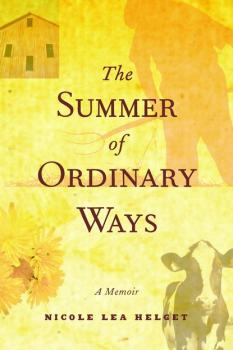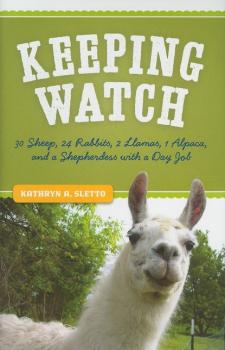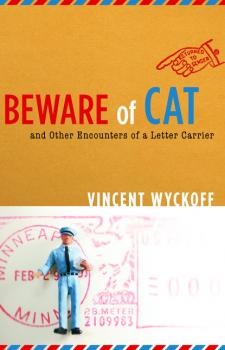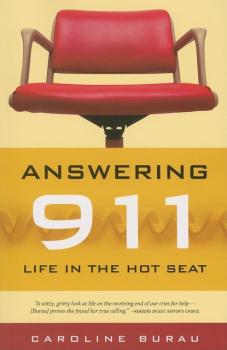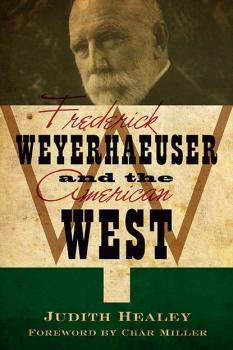ТОП просматриваемых книг сайта:
Биографии и Мемуары
Различные книги в жанре Биографии и Мемуары, доступные для чтения и скачиванияАннотация
In 1930 two novice paddlers—Eric Sevareid and Walter C. Port—launched a secondhand 18-foot canvas canoe into the Minnesota River at Fort Snelling for an ambitious summer-long journey from Minneapolis to Hudson Bay. Without benefit of radio, motor, or good maps, the teenagers made their way over 2,250 miles of rivers, lakes, and difficult portages. Nearly four months later, after shooting hundreds of sets of rapids and surviving exceedingly bad conditions and even worse advice, the ragged, hungry adventurers arrived in York Factory on Hudson Bay—with winter freeze-up on their heels. First published in 1935, Canoeing with the Cree is Sevareid's classic account of this youthful odyssey.<br /><br />?Praise for Canoeing with the Cree<br /><br />?"Canoeing with the Cree is an all-time favorite of mine." —Ann Bancroft, Arctic explorer and co-author of No Horizon Is So Far<br /><br />?"Two high school graduates make an amazing journey . . . showing indomitable courage that carried them through to their destination. Humor and a spirit of adventure made a grand, good time of it, in spite of storms, rapids, long portages and silent wildernesses." —Library Journal
Аннотация
racticing baseball with Dad, then watching him go after a cow with a pitchfork in a fit of rage. Playing chicken on the county road with semi trucks full of hogs. Flirting with the milkman. Chasing with your sisters after Wreck and Bump, mangy mutts who prowl farmsteads killing chickens and drinking fuel oil. Dandelion wine. The ghost of a girl buried alive over a century ago. These unforgettable, sometimes hilarious images spill from a fierce and wondrous childhood into the pages of The Summer of Ordinary Ways.
Аннотация
". . . the memory of my mother came to me like a drifting scent in the breeze, swirling through the branches of a nearby cedar tree. I was drawn back [35 years] to the day I learned she had passed on. But that autumn day of 1973 did not grip me with deep sadness, the burden of never seeing her again. I was looking at that day from a new angle, a distant view that seemed to suggest a new, untold story. I was suddenly more than curious about who my mother truly was in this life and beyond."<br /><br />Uprooted from family and community in Milwaukee by her husband, a French and Irish construction worker with a drinking problem, Corrine Rolo struggles to raise their seven children on a remote farm near Big Falls, Minnesota. She longs to move back to Milwaukee, or to visit her relatives on the Bad River Ojibwe reservation, at one point threatening to leave the older kids behind and return to her home in the city.<br /><br />Mark Anthony Rolo sifts through potent dreams and childhood memories to recreate a picture of his often conflicted mother during the last three years of her life. She told him a few warm stories of her life on the reservation, but she participated in the family's casually derogatory banter about their Ojibwe heritage. She spent little time helping Rolo with his schoolwork, even as she wrote voluminous, detailed letters to her family in Milwaukee. She could treat her children harshly and yet also display the fiercest love.<br /><br />With an innocent and sometimes brutal child's view, Rolo recounts stories of a woman who battles poverty, depression, her abusive husband, and isolation through the long northern Minnesota winters, and of himself, her son, who struggles at school, wrestles with his Ojibwe identity, and copes with violence. But he also shows, with eloquence and compassion, his adult understanding of his mother's fight to live with dignity, not despair.
Аннотация
In our fast-paced modern world, quitting one's job to live off the land is a common if often unrealized dream, but Kathy Sletto and her husband Terry know that one of them will simply have to. They were both raised on farms, they own a picturesque parcel of land, and they love the sheep they are raising on the side, but the work with the animals is taking over their lives. She is the fiber arts specialist, and she jumps at the chance.<br /><br />Besides, they got into this predicament because of Sletto's crazy love of animals. An initial purchase of two sheep quickly grows to an entire flock with the addition of llamas, an alpaca, and way too many angora rabbits— each treated more like family than livestock. It's a fault Sletto recognizes when she can't bring herself to cull her favorite sheep for the good of the flock, put down a roaming dog, or give up on a lamb born blind. She sees in these animals distinct personalities, respects their quirks, and recounts their adventures in hilarious tales—Tony the lonely, lambloving alpaca, Steve the possum-playing rabbit, Mack Dawg the llama with berserk male syndrome.<br /><br />When freelance grant writing promises to balance the household books, Sletto must counterpoise new demands with the old, showing how the most modern and most ancient of work can coexist in this American life.
Аннотация
Kevin Kling, best known for his popular commentaries on National Public Radio's All Things Considered and his storytelling stage shows like Tales from the Charred Underbelly of the Yule Log, delivers hilarious, often tender stories to readers everywhere with his first book, he Dog Says How. Kling's autobiographical tales are as enchanting as they are true to life: hopping freight trains, getting hit by lightning, performing his banned play in Czechoslovakia, growing up in Minnesota, and eating things before knowing what they are.<br /><br />In "Circus Tale," Kling recollects how his love of boats, animals, and adventure inspired him to join a traveling circus troupe—but it was the all-you-can-eat buffets that cinched the deal. In "Hockey Hair," Kling spots old pals from his hometown who sport mullet-like haircuts, spurring him to unlock doors to his past. In the comical yet poignant title story, Kling straddles the world of the ordinary and one rivaling Dante's inferno as he learns how to use voice-recognition software after a motorcycle accident.<br /><br />In Kling's classic and never-before-told stories, "the mundane becomes magical, the fantastic becomes accessible and through it all his profound sense of curiosity about the world transforms the everyday to the timeless"—Queen Anne News, Seattle.
Аннотация
One sunny day on his postal route, Vincent Wyckoff crosses the path of an elderly gentleman whistling for his lost parakeet. The old man is upset, and Wyckoff moves down the block slowly, looking high and low, hoping to spot the little bird. He reaches the man's house and offers sympathy to his wife, who smiles sadly and says, "We haven't had that bird for twenty-five years."<br /><br />Letter carriers like Wyckoff walk through the same neighborhood each day, observing the lives and routines of its residents. They learn its stories, make connections between people, and, in many ways, become the common thread that connects neighbors to one another. Along Wyckoff's mail route, Native American children teach him about totems. He finds assistance for a reclusive chain-smoking book collector who can't maintain his property. He delivers a much-delayed registered letter mailed from Saigon in 1976. Over the years, Wyckoff sees the neighborhood of blue-collar retirees change as a diverse group of younger people move in and raise their families.<br /><br />Celebrating the triumphs in everyday life and demonstrating the danger of trusting first impressions, Beware of Cat reveals the inner workings of an ordinary place of extraordinary interest.
Аннотация
You answer a call from a fourteen-year-old boy asking for someone to arrest his mother, who is smoking crack in their bathroom. You talk with him until the cops arrive, making sure there are no weapons around and learning that his favorite subject in school is lunch. Five minutes later, you have to deal with someone complaining about his neighbor's clarinet practice.<br /><br />What is it like to be on the receiving end of desperate calls for help . . . every day? Caroline Burau, a former newspaper reporter and nursing student who couldn't stand the sight of blood, takes a job as an emergency dispatcher because she likes helping people. But on-the-job training at the comm center proves to be more than she bargained for. As she adjusts to a daily life of catastrophe and comedy, domestics and drunks, cops and robbers, junk food and sarcasm, lost cats and suicides, she discovers that crisis can become routine, that coworkers can be mean—that she must continue to care and, at times, learn how to let go.<br /><br />Praise for Answering 911<br /><br />"The day may come when I have to dial 911. I hope to God that the person who answers is Caroline Burau or someone like her. Funny, honest, and elegantly simple, this book left me with a sense of grace and hope." —Alison McGhee, author of Shadow Baby, Rainlight, Was It Beautiful? and Falling Boy
Аннотация
Kevin Kling's first book, The Dog Says How, brought readers into his wonderful world of the skewed and significant mundane. Kling does it again in Kevin Kling's Holiday Inn, a romp through a yearful of holidays and a lifetime of gathering material.<br /><br />A wiener dog with an amazing capacity for destruction impresses the whole family and contributes to their collection of favorite disastrous Christmas stories. A Choctaw and a nun go trick-or-treating on Halloween. A boy makes a frightening decision every year when he chooses which classmate gets the "Be Mine" Valentine. Kevin takes his mom to a Fourth of July demolition derby–and then he takes an epic trip around the bases at a ball game on Memorial Day.<br /><br />From tomfoolery with his brother in the backseat of their dad's car through his carefully considered instructions for ice fishing, Kling never loses the spirit of his story or holds back on its humor.
Аннотация
Babes in Toyland burst onto the Minneapolis music scene in the late 1980s and quickly established itself at the forefront of punk/alternative rock. The all-female trio featured a shy, seventeen-year-old Jewish teen from the suburbs on bass guitar—an instrument she had never played before joining the band.<br /><br />Over the next few years, Michelle Leon lived the rock-and-roll lifestyle—playing live concerts, recording in studios, touring across the United States and Europe, and spending endless hours in stuffy vans, staying in two-star motels, and sleeping on strangers' couches in town after town. The grind and drama of life in the band gradually wore on Leon, however, and a heartbreaking tragedy led her to rethink her commitment to the band and the music scene.<br /><br />Leon's sensitive, sensory prose puts readers right on stage with Babes in Toyland while also conveying the uncertainty, vulnerability, and courage needed by a girl who never felt like she fit in to somehow find her place in the world.
Аннотация
The Weyerhaeuser name looms large in Minnesota, Wisconsin, Washington, and Arkansas, attached to paper mills, cabinet factories, and vast tracts of land, both forested and cut over. Frederick Weyerhaeuser, the man who started the lumber empire, significantly shaped the American economy and landscape from Wisconsin westward in the nineteenth century.<br /><br />A complex and private man, Weyerhaeuser emigrated from Germany in 1852 at the tender age of eighteen. In just a few years, he would be a prominent lumberman, organizing partnerships among competing companies, rationalizing the business, and then making the largest timberland purchase in the history of the United States.<br /><br />Author Judith Koll Healey narrates the life of this extraordinary man through newly available resources: his extensive correspondence and journal entries as well as the letters and diaries of family members, friends, and business associates from around the country. She frames Weyerhaeuser's many commercial opportunities and business decisions within both the family's internal dynamics and world events: war and unrest, economic upswings and downturns, and western expansion and eastern urbanization. Throughout, Healey offers a thoughtful perspective on his achievements as well as the limitations of his vision for the expansion of the American West.


